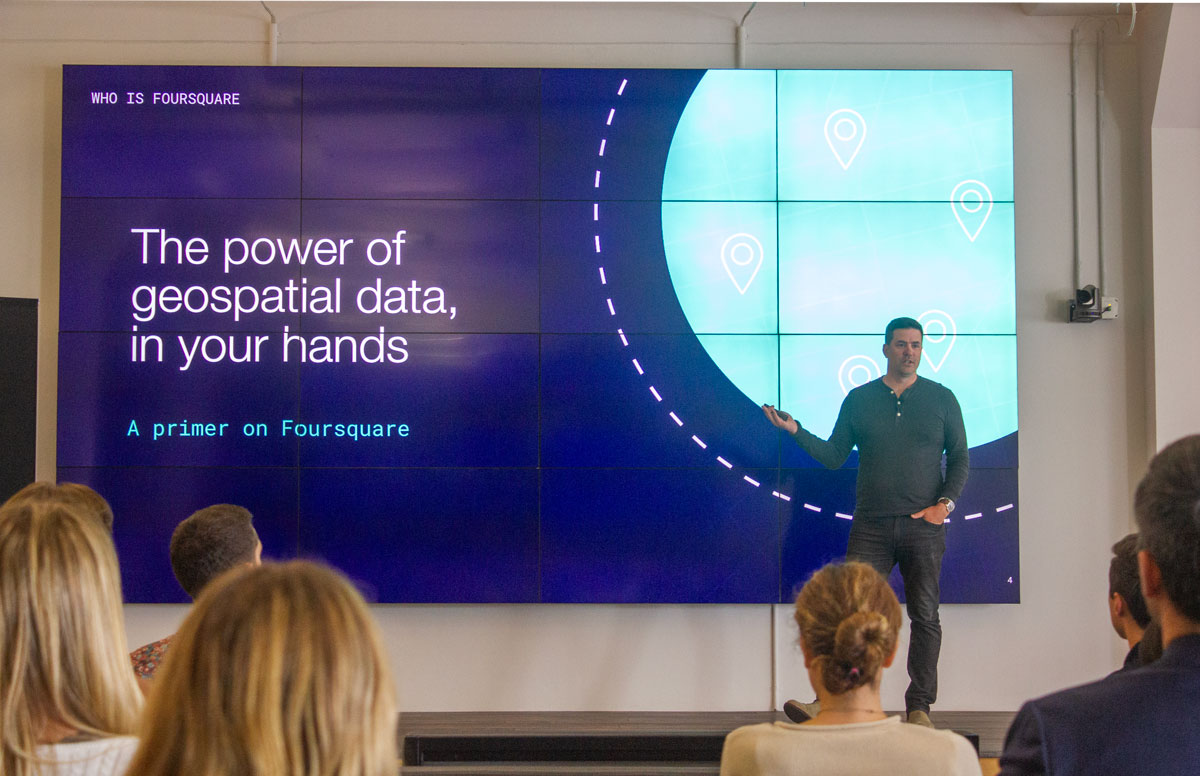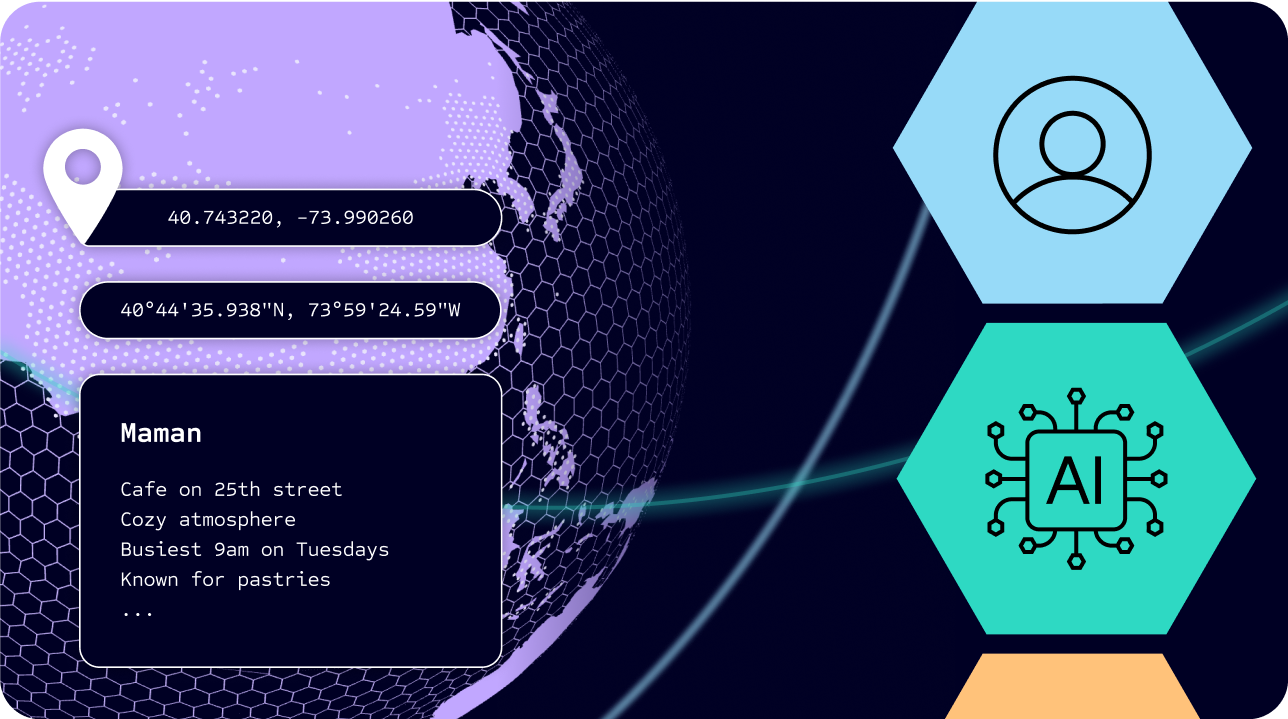It’s no secret that academic researchers are a wealth of knowledge. They continuously strive to learn and discover new topics within their respective fields by working with new methodologies and the latest innovations. At Foursquare, we often collaborate with these experts to understand even more about the geospatial technology landscape; what type of movement matters and how these insights can be put towards valuable findings. In the past, they’ve leveraged our data for their research to help predict foot traffic and shopping patterns, develop urban planning tools, and much more.
As we delve into the world of emerging technologies, market trends, and consumer behavior, we’re eager to hear what unique predictions and insights our academic research partners can offer to stay ahead of the curve in today’s ever-changing environment. We interviewed three researchers from diverse academic backgrounds and here’s a glimpse into what they see on the horizon:
What are some trends or technologies you foresee emerging in the market in 2024?

Artificial intelligence (AI), large language models (LLMs), and cryptocurrency are leading the pack in what could be the biggest disruptors in the year to come.
When it comes to AI, Cambridge University PhD and VP of Data Science at Firefly, Tassos Noulas, predicts that organizations will become “more open in integrating these services in a manner that employee productivity is improved at all levels.” Also, with these increased integrations, he predicts that, “AI bots that operate internally at companies with domain specific knowledge will facilitate multiple types of operations.”
Another researcher Alexander Singleton, Professor of Geographic Information Science, University of Liverpool, predicts that there will be continued competition to “build the most powerful large language models between both private sector organizations and the open source community.” He shares that with these LLM activities, we will also start to see “greater divergence and specialization of models, particularly in terms of those that are multi-modal,” emphasizing the increasing importance for businesses to make data-driven decisions.
In addition to AI and LLMs, Noulas mentions cryptocurrency as another trend to keep an eye on. He shares that what is more likely for this category is, “…change in the value of coins and its growing impact in mainstream economy will result in the development of new services that allow the public to access crypto technologies in an easier manner.”
Whether it’s AI, LLMs or cryptocurrency, these technologies are evolving rapidly and businesses need to remain adaptable and vigilant of what is to come in order to reap the benefits of productivity.
Is there a particular sector that will experience significant growth or disruption based on these market trends this year?
According to all three researchers, technology companies are one of the top industries predicted to experience the most significant growth and disruption.
Postdoctoral Researcher at the Computational Social Science Lab at University of Pennsylvania, Jorge Barreras, specifically calls out the big tech sector predicting that content generation will be heavily impacted. He shares that, “[a] growing percent of data out there will be generated by AI,” expressing concern from a researcher’s perspective, as researchers rely on data for its accuracy. This builds on Foursquare’s own prediction that quality ground-truth data must be at the center for AI excellence, especially as we continue to learn from various types of data.
Due to their natural affinity with AI, Noulas also predicts that technology companies will most likely become those that will be “the quickest adopters of new AI-trends, as well as those that will dedicate the highest amount of resources to it.” He shares that we will see “progressive changes taking place both in the development of new surgical robot devices, as well as in more data intensive domains like biology, genetics and new drug discovery.”
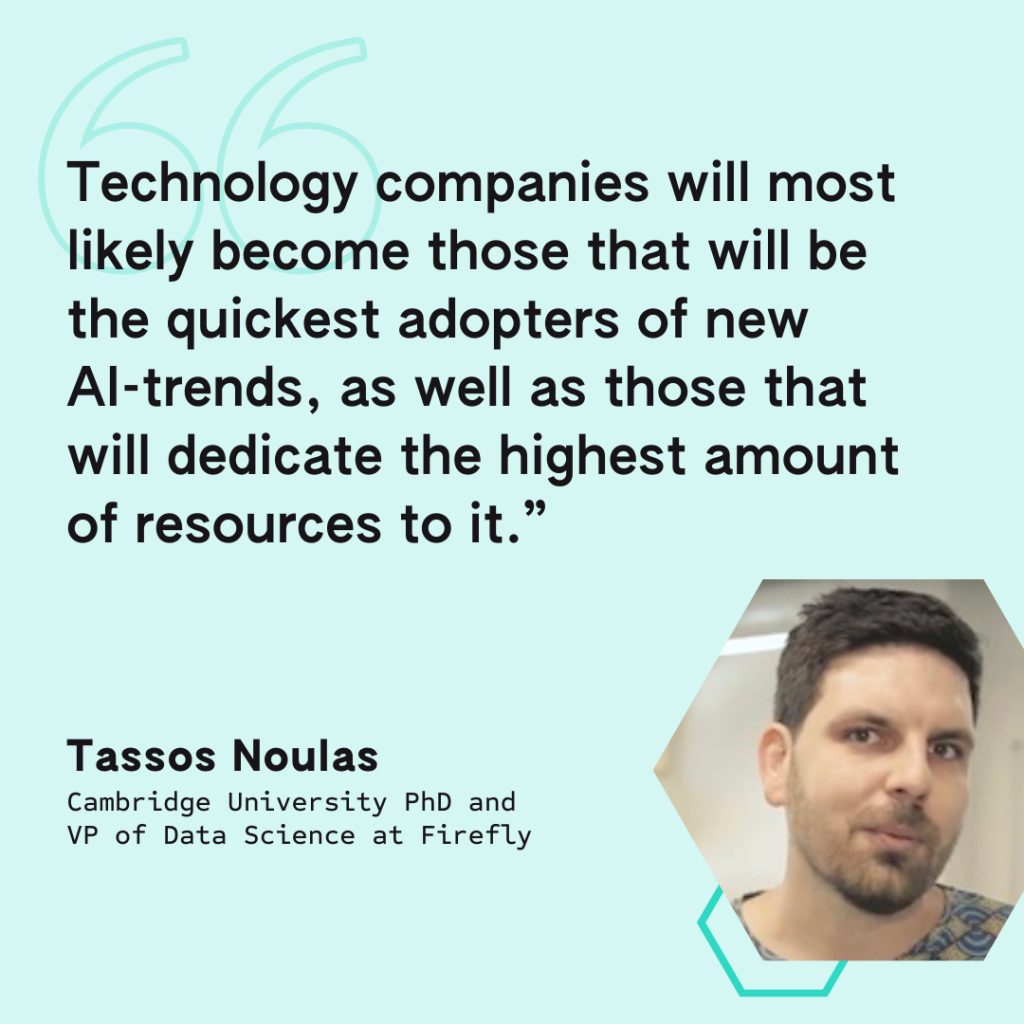
There’s no question that technology companies are experiencing the impact of these emerging technologies, so building a solid foundation through quality data, resources, and beyond is more critical than ever.
How do you see consumer behavior evolving, and what impact will it have on market dynamics?
When it comes to the evolution of consumer behavior, Singleton shares that consumers will have no choice but to “engage with AI based technology as they become increasingly embedded and pervasive aspects of their everyday lives; and in particular through their digital interactions and interfaces.” He believes this will be driven by both hardware and software innovations, as well as growth of SaaS platforms.
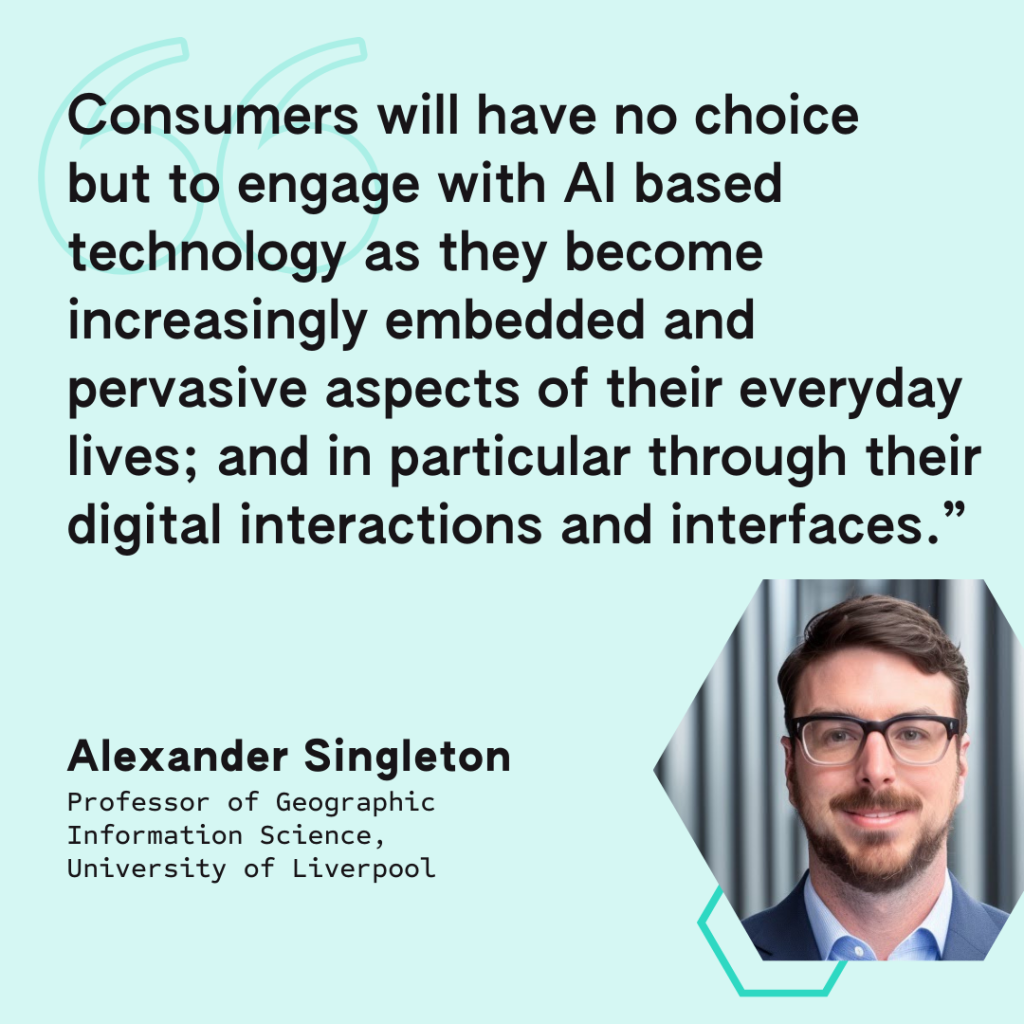
As these aforementioned technologies become embedded in the day-to-day lives of consumers, Foursquare emphasizes the necessity of a robust base layer of real-world signals for AI systems, and particularly, GeoAI systems.
In addition to the impact of AI, Noulas emphasizes the impact that cryptocurrency will have on market dynamics stating that, “exploring alternative sources of income, as well as portfolio management solutions” will continue to attract interest in light of current challenging economic conditions.
How might the trends you’re observing now shape the landscape in the years to come?
In looking ahead, the researchers shared some similar sentiment around the various impacts AI will have on society. As we navigate the complexities of this evolving field, Barreras shares that “AI is unpredictable. It will be strange to see how it will intersect with many dimensions of our lives, some that perhaps we don’t picture yet: generating our ads on the fly, being embedded as conversational assistants in many devices, or spreading misinformation and deep fakes that pose threats to national security.”
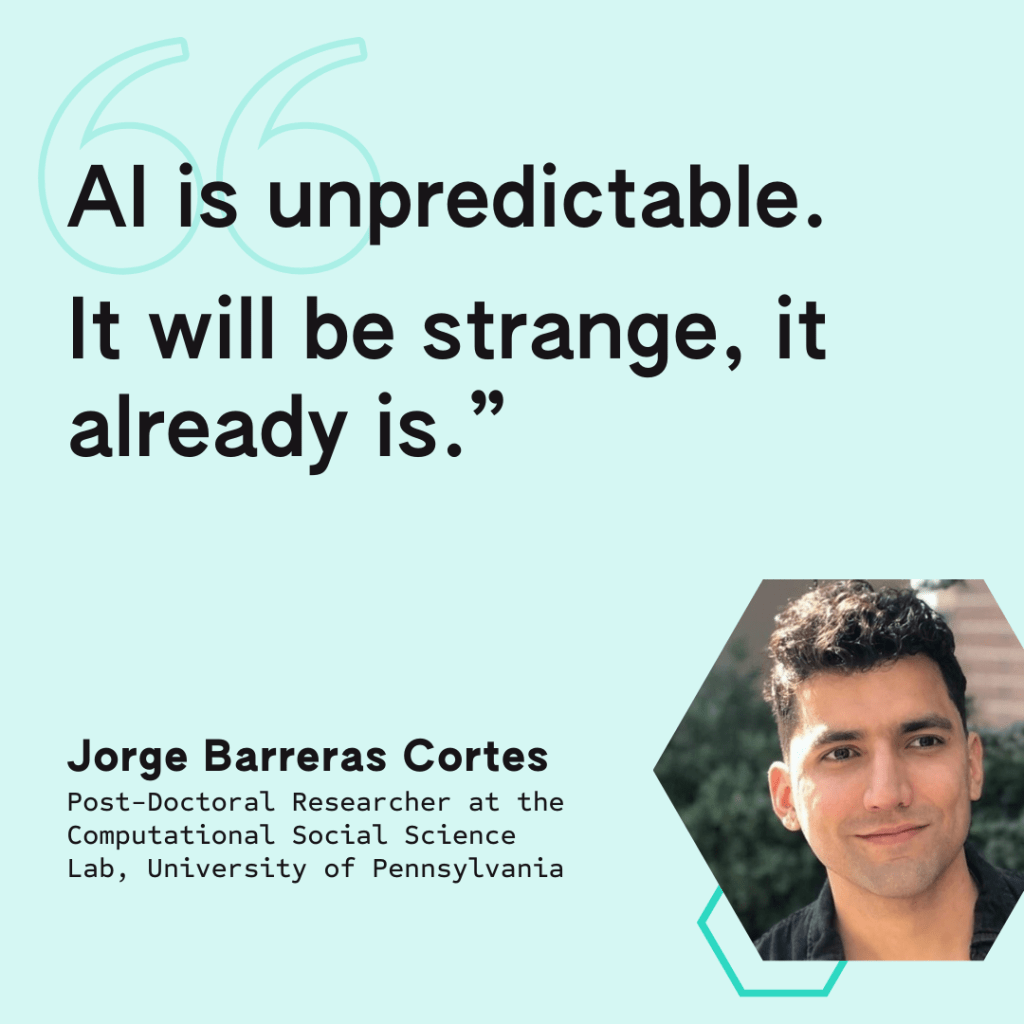
“The revolution of AI is still at a stage of infancy,” says Noulas. As time goes on, he believes we’ll see an increase in “labor and financial productivity emerging first, and then more major and lasting breakthroughs in the areas of education, medicine and the environment.”
Singleton also shares an interesting perspective on multi-modal AI and how it will “enable richer interactions between humans and machines, making technology more accessible and intuitive across different languages, cultures, and learning styles.”
Through these engaging interviews, we gained insights into how businesses can effectively navigate the emerging landscape of AI, LLM and cryptocurrency, and how this may impact productivity, market dynamics, and business transformations.
As the world’s leading geospatial technology platform, Foursquare continues in its commitment to partner with thought leaders in and outside of our industry to better understand the advancements and application of data across every avenue. To learn more, check out our page for Academics.
Reviewed By: Casey Moynagh


